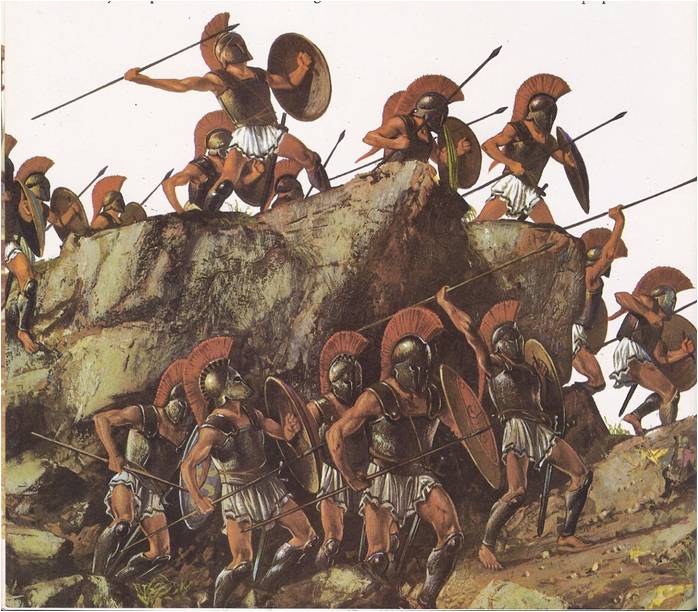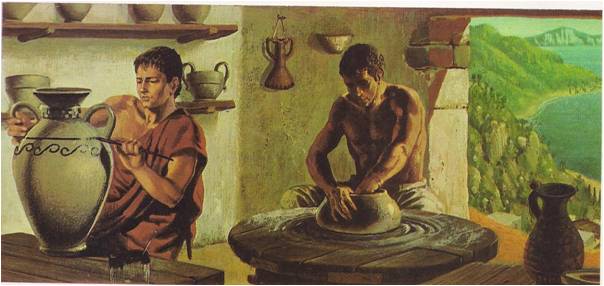About 425 B. C., a lonely man, in a country that was not his own, sat down to write the story of a war that had begun six years before. Thucydides, an Athenian, had fought in the war’s first battles. He had been a general, in command of thousands of his city’s troops. Then he was ordered to go to the aid of another commander whose men were outnumbered. When he arrived, the battle had already been fought and lost. It was not his fault but the people of Athens were too anxious about the war to consider that. They stripped Thucydides of his command and forced him to leave his homeland. Now, while the war raged on, he could only watch and he was troubled by the things he saw. Athens and its rival Sparta were caught in a deadly struggle to see which would be the master of the Greek world. Men died, cities were destroyed and nothing was gained, but the war went on. Thucydides began to write about the senseless fighting, hoping that he might teach the men of another time to avoid war. He wrote about the ambassadors from the city of Corinth, who spoke to the Spartans in their assembly, warning them about Athens. “You have no idea what kind of people these Athenians are”, the Corinthians said, “how altogether different from you. They are always thinking up new schemes and they are quick to make plans and to do something about them; but you are happy with what you have and slow to do even what is necessary. The Athenians are bold and adventurous; you Spartans are cautious and afraid to trust your own strength. They love foreign adventure, which you hate, because they think there is something to win, while you think …
Read More »









